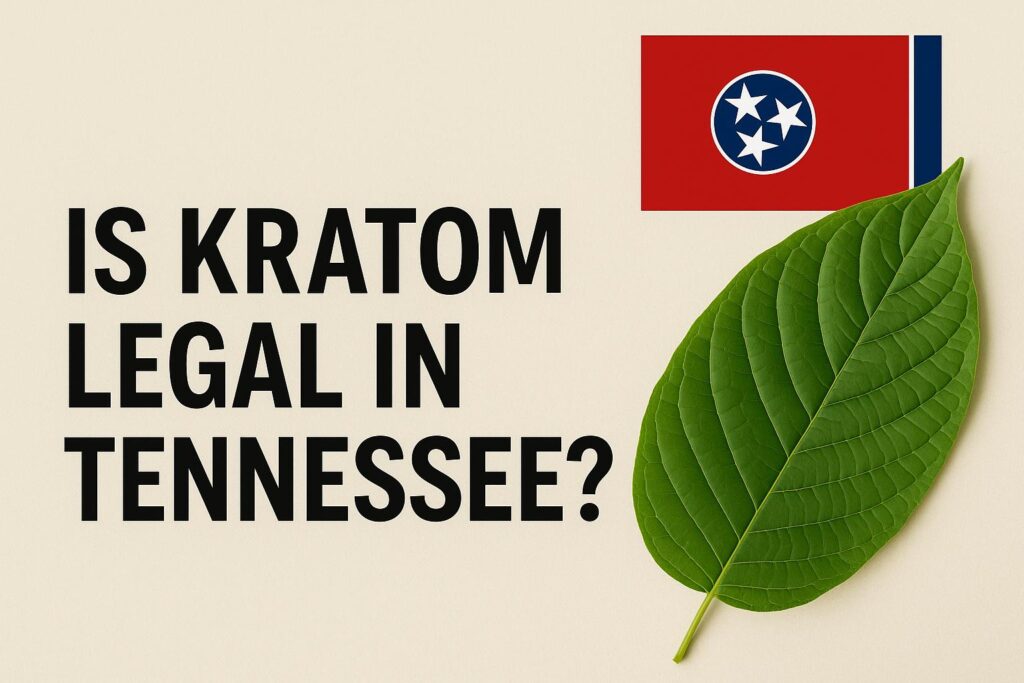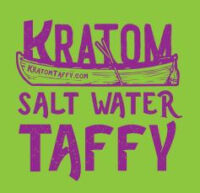Current Legal Status of Kratom in Tennessee
As of now, kratom is legal to buy, sell, and possess in Tennessee—but only under certain conditions. The state passed legislation that regulates kratom products rather than banning them outright. This means consumers can legally purchase kratom, but the product must be in pure leaf or capsule form, and it must not be synthesized or altered chemically.

The law specifically prohibits synthetic versions of kratom’s active compounds, like mitragynine and 7-hydroxymitragynine, which means some kratom extracts or enhanced products are technically not allowed. This is crucial to know because many retailers may not label their products clearly, making it harder for consumers to tell what’s legal.
You must also be 21 years or older to purchase kratom in Tennessee. Retailers are expected to verify age, and violating these rules can result in penalties for both buyers and sellers. So yes, kratom is legal in Tennessee, but it comes with a detailed set of rules that everyone needs to respect.
History of Kratom Legislation in Tennessee
The road to legalization in Tennessee wasn’t exactly smooth. In 2014, lawmakers attempted to classify kratom as a controlled substance, citing concerns about safety and potential abuse. However, the pushback from kratom users and advocacy groups was strong enough to halt the bill.
Later, in 2018, Tennessee passed legislation that effectively regulated kratom rather than banning it. This law clarified that while kratom was not prohibited, it must be in its natural botanical form and free of any synthetic additives. This was a big win for users who rely on kratom for personal wellness or pain relief.
Since then, the state hasn’t imposed a full ban, but there’s always a level of uncertainty, especially as nationwide conversations around kratom shift. Advocacy groups have remained active in Tennessee, keeping lawmakers informed and encouraging consumers to stay vigilant about changing policies.
What the Tennessee Controlled Substances Act Says
Kratom is not listed as a Schedule I drug under the Tennessee Controlled Substances Act, which is important because Schedule I substances are considered to have no accepted medical use and a high potential for abuse. However, the law does address kratom indirectly.
In Tennessee, the law prohibits “synthetic forms” of kratom’s main alkaloids. This means that any chemically modified version of kratom—such as enhanced or fortified extracts—is considered illegal under the state’s drug policy. That’s a fine line that’s not always clearly communicated to consumers.
So while the natural leaf remains legal, any concentrated or altered form might land you in legal hot water. It’s one of those situations where being educated on the law is not just helpful—it’s necessary if you want to avoid unintentional violations.
Age Restrictions and Purchase Regulations
Tennessee law clearly states that individuals must be at least 21 years old to purchase kratom. This restriction applies to both in-store and online purchases and is meant to align with the age requirements for other regulated substances like tobacco and alcohol.
Retailers are required to verify the buyer’s age, and failure to do so can result in hefty fines or legal action. Many stores have implemented ID scanning at the register, and online vendors typically use age verification software before checkout.
If you’re under 21 and caught trying to purchase or possess kratom, you could face penalties. It’s not treated like a felony offense, but it’s still a legal issue you don’t want to deal with. So make sure you’re of legal age, and buy from a reputable vendor who complies with the law.
Is Kratom Legal in All Cities and Counties in Tennessee?
Here’s where things get a little complicated. While kratom is legal statewide under Tennessee law, local governments have some flexibility. This means certain cities or counties could pass ordinances that further restrict or ban kratom within their jurisdictions.
As of now, no major Tennessee city has enacted a local ban, but that doesn’t mean it couldn’t happen. Laws like this often change in reaction to public health concerns, media coverage, or law enforcement trends.
If you’re unsure whether kratom is allowed in your local area, it’s a good idea to check with your city or county government. Don’t assume that state legality means total freedom—local laws can override or add to state guidelines in specific cases.
Retail vs Online Kratom Sales in Tennessee
Buying kratom in a Tennessee store is legal, but retailers are under strict scrutiny. They’re expected to comply with packaging laws, age verification, and product purity requirements. Many head shops, herbal stores, and gas stations offer kratom, but not all vendors follow the rules.
Online vendors, especially those based out of state, can offer more transparency and better quality control. They often provide lab testing results, detailed strain descriptions, and clear information about legal compliance. This makes online purchasing a more reliable option for informed consumers.
That said, you still have to be careful. Some online sellers may offer products that don’t meet Tennessee’s standards, like enhanced kratom or synthetic blends. Always read the product label and verify that what you’re buying falls within the legal definition of kratom in Tennessee.
Law Enforcement and Kratom Possession Cases
Law enforcement in Tennessee is aware of kratom but doesn’t treat it the same as narcotics or controlled substances. That said, issues can arise if someone is found with kratom that appears suspicious or improperly labeled.
Most legal problems occur when people carry kratom in unmarked containers, use it in public settings, or possess concentrated forms that are technically banned. If it looks like a substance that could be illegal, you might get pulled aside for questioning.
It’s smart to carry kratom in its original packaging and be able to show that it’s compliant with state laws. This reduces the chances of confusion and helps law enforcement understand that you’re a responsible, law-abiding consumer.
Ongoing Debates and Legislative Proposals
Kratom is still a hot topic in Tennessee’s legislative circles. Some lawmakers have expressed concerns about its safety, citing potential abuse or unknown long-term effects. On the other hand, many legislators are taking a “wait and see” approach as more research becomes available.
There have been talks about introducing more comprehensive regulation, including mandatory lab testing, packaging requirements, and tighter restrictions on sales. These proposals haven’t gained much traction yet, but they show that kratom’s legal status isn’t set in stone.
If you’re a regular kratom user, it’s important to stay engaged with these conversations. Join local advocacy groups, contact your representatives, and support initiatives that promote safe and legal access to kratom.
What Advocacy Groups Are Saying in Tennessee
Groups like the American Kratom Association (AKA) have played a big role in keeping kratom legal in Tennessee. They work closely with lawmakers to push for reasonable regulation instead of outright bans.
The AKA supports the Kratom Consumer Protection Act (KCPA), which has been adopted in several other states. This legislation sets up quality control standards and protects the rights of consumers, while also addressing concerns about safety and misuse.
In Tennessee, advocacy groups continue to educate the public and lawmakers about kratom’s benefits, especially for chronic pain and anxiety. Their efforts help balance the narrative and ensure that kratom remains accessible for those who genuinely need it.
How Tennessee Compares to Other States on Kratom Laws
Compared to other U.S. states, Tennessee falls somewhere in the middle when it comes to kratom regulation. It hasn’t banned kratom completely, like Alabama or Wisconsin, but it has stricter rules than more kratom-friendly states like Florida (excluding Sarasota County) or Oregon.
Some states have passed the KCPA, which formalizes legal protections for kratom users. Tennessee hasn’t taken that step yet, but the 2018 law regulating synthetic kratom shows the state is willing to take a middle path.
This cautious-but-legal stance means kratom users in Tennessee can still enjoy access to the herb—so long as they stay informed, shop smart, and keep tabs on any local updates.
Conclusion
Is kratom legal in Tennessee? Yes, but it’s not a free-for-all. You can buy and use kratom in its pure leaf or capsule form, as long as you’re over 21 and avoid synthetic versions. We’ve covered the history, the rules, the loopholes, and the city-specific details you need to know to stay on the right side of the law.
Kratom’s legal status can shift fast, and Tennessee is no exception. If this guide helped clear things up for you, go ahead—share it, leave a comment, or tell a friend who’s been wondering the same thing. Staying informed is how we keep access open and safe for everyone.
